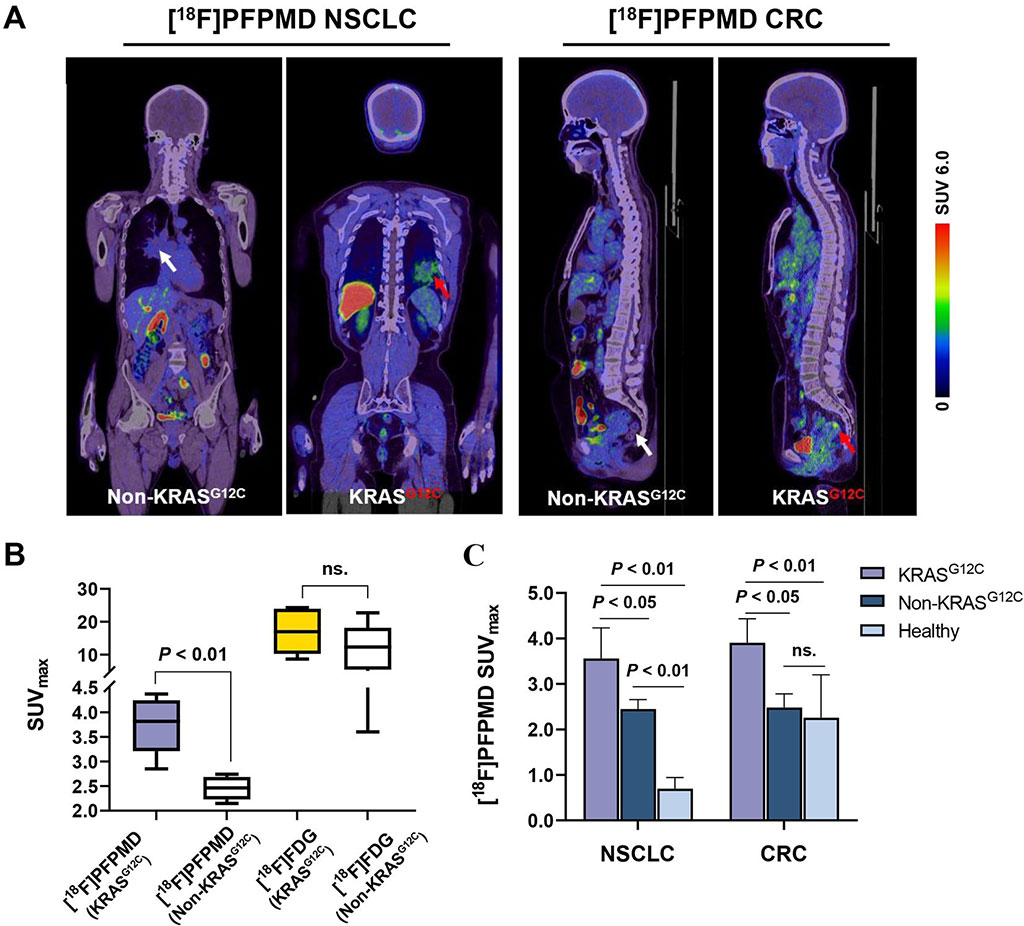Novel PET Imaging Tracer Noninvasively Identifies Cancer Gene Mutation for More Precise Diagnosis
Posted on 21 Dec 2023
Kirsten rat sarcoma (KRAS) is a commonly mutated oncogene that is found in about 20-70% of cancer cases. Patients with KRAS mutations generally respond poorly to standard therapies. Hence, it is recommended to assess the mutation status in cancer patients to determine the most effective treatment. Presently, screening for KRAS mutation involves a biopsy combined with gene sequencing. However, biopsies can be accompanied by significant complications and have limited use owing to the quality of the tissue sample. This creates an urgent need for accurate yet noninvasive methods for the evaluation of the KRAS mutation status. Now, a study has found a novel PET imaging tracer to safely and effectively detect the common KRAS cancer gene mutation that is an important molecular marker for tumor-targeted therapy. Early identification of this can allow physicians to tailor treatment plans for patients to achieve the best results.
Researchers at Fourth Military Medical University (Xi’an, China) conducted this first-in-human study to develop a KRAS-targeted radiotracer and examine its targeting potential in non-small cell lung cancer (NSCLC) and colorectal cancer (CRC). The researchers created an oncoprotein-targeted PET tracer, 18F-PFPMD, based on a recently FDA-approved KRASG12C inhibitor. The team conducted both in vitro and in vivo studies to assess the tracer’s targeting specificity and imaging ability. The researchers also carried out further evaluation in healthy volunteers, NSCLC patients, and CRC patients.

The researchers obtained 18F-PFPMD with a high radiochemical yield, radiochemical purity, and stability and proved that it could selectively bind to the KRASG12C protein in preclinical studies. They found the tracer to be safe for humans, with the ability to clear rapidly from the gallbladder and intestines. Among NSCLC and CRC patients, the accumulation of 18F-PFPMD was much higher in tumors with the KRASG12C mutation as compared to those without the mutation.
“This research reveals that 18F-PFPMD is a promising molecular imaging tool of significant clinical relevance,” said Jing Wang, MD, PhD, nuclear medicine physician at Xijing Hospital of Fourth Military Medical University. “Moving forward, the tracer could be useful to screen the KRASG12C mutation status, as well as for patient selection of KRASG12C targeted therapy. Moreover, it could be used for monitoring therapeutic response and drug resistance for cancer patients.”
Related Links:
Fourth Military Medical University














